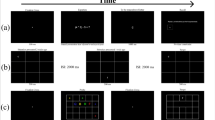Summary
Improvement in the efficacy of newer antihypertensive agents has resulted in consideration of the side effects of drug therapy. Impairment of memory function resulting from antihypertensive therapy has been clinically suspected. This observation has been supported by a study in which the effects of methyldopa and propranolol on memory function were reported. Recently, memory function has been assessed in a group of patients treated with either a β-blocker (atenolol) or an angiotensin-converting enzyme inhibitor (enalapril) in a randomised, observer-blind study in moderate essential hypertension. The patients were assessed, on placebo and after 16 weeks of treatment on active therapy, by use of a series of 4 memory function tests related to everyday life. In the hypertension study group, 13 received atenolol and 12 received enalapril. Similar reduction of diastolic pressure occurred in both groups, but systolic pressure was significantly reduced in the enalapril group (p < 0.05). In the atenolol group memory performance scores were consistently lower than in the placebo phase in 9 of 28 estimates of memory function. In the enalapril group there were no significant changes. The study indicated that atenolol might produce mild memory impairment, whereas enalapril was devoid of any measurable effect on memory function.
Similar content being viewed by others
References
Betts TA, Alford C. β-Blocking drugs and sleep: a controlled trial. Drugs 25 (Suppl. 2): 268–272, 1983
Croog SH, Levine S, Testa MA, Brown B, Bulpitt CJ, et al. The effect of antihypertensive therapy on quality of life. New England Journal of Medicine 1314: 1657–1664, 1986
d’Elia G, Jacobson L, von Knorring L, et al. Changes in psychopathology in relation to EEG variables and visual average evoked responses (V.AER) in schizophrenic patients treated with penfluridol or thiothixene. Acta Psychiatra Scandinavica 55:309–318, 1977
Eysenck MW. Effects of noise, activation level and response dominance on retrieval from semantic memory. Journal of Experimental Psychology 104: 143–148, 1975
Fraser HS, Carr AC. Propranolol psychosis. British Journal of Psychiatry 129: 508–509, 1976
Garvey HL, Ram N. Centrally induced hypotensive effects of betaadrenergic blocking drugs. European Journal of Pharmacology 33: 283–294, 1975
Goldstein AG, Change JE. Recognition of complex visual stimuli. Perception and Psychophysics 9: 237–241,1971
Hammond NV, Grozelier JH. Laterality, attention and rate effects in the auditory temporal discrimination of chronic schizophrenics: the effect of treatment with chlorpromazine. Quarterly Journal of Experimental Psychology and Cognate Medical Sciences 30: 91–103, 1978
Hartley LR, Ungapen S, Davie L, Spencer DJ. The effect of betaadrenergic blocking drugs on speaker’s performance and memory. British Journal of Psychiatry 142: 512–517, 1983
Heald AF, Ita CE. Distribution in rats of an inhibitor of angiotensin-converting enzyme. SQ 14,225, as studied by whole-body auto-radiography and liquid scintillation counting. Pharmacologist 19: 129, 1977
Jachuck SJ, Brierley H, Jachuck S, Willcox PM. The effect of hypotensive drugs on the quality of life. Journal of the Royal College of General Practitioners 32: 103–105, 1982
Lichter I, Richardson PJ, Wyke MA. Differential effects of atenolol and enalapril on memory during treatment for essential hypertension. British Journal of Clinical Pharmacology 21: 641–645, 1986
Milner B. Visual recognition and recall after right temporal lobe excision in man. Neuropsychologia 6: 191–209, 1968
Milner B. In Pribham KH, Broadbent ED (Eds) Biology of memory, pp. 29–50, Academic Press, New York, 1970
Olajide S, Lader M. Psychologropic effects of enalapril maleate in normal volunteers. Psychopharmacology 86: 374–376, 1985
Patel L, Turner P. Central actions of beta-adrenoceptor blocking drugs in man. Medical Research Reviews 1: 387–410, 1981
Russell EW. A multiple scoring method for the assessment of complex memory function. Journal of Consulting Clinical Psychology 43: 800–880, 1975
Salem SA, McDevitt DG. Central effects of beta-adrenoceptor antagonists. Clinical Pharmacology and Therapeutics 33: 52–57, 1983
Solomon S, Hotchkiss E, Saravay SM, Bayer C, Ramsay P, et al. Impairment of memory function by antihypertensive medication. Archives of General Psychology 40: 1109–1112, 1983
Waal HJ. Propranolol-induced depression. British Medical Journal 2: 50, 1967
Author information
Authors and Affiliations
Rights and permissions
About this article
Cite this article
Richardson, P.J., Wyke, M.A. Memory Function — Effects of Different Antihypertensive Drugs. Drugs 35 (Suppl 5), 80–85 (1988). https://doi.org/10.2165/00003495-198800355-00014
Published:
Issue Date:
DOI: https://doi.org/10.2165/00003495-198800355-00014




